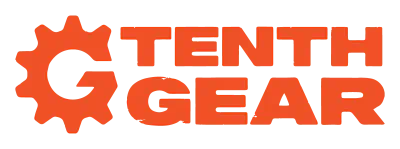Scale and make better decisions
Background
This company operates in the mental health and wellness industry. It is known for developing and running professional training events and conferences.
Problem
As the scope of the events grew, the number of participants increased, disproportionally multiplying the complexity and time required to manage them - which was done via spreadsheets, notes, and email folder structure.
An urgent change was needed to preserve the quality and ensure that events were profitable.
Reduce operational costs
Mailing beautifully designed event catalogs was critical for attracting participants; however, the costs increased as the mailing list grew.
When participants moved or changed jobs, the address list became outdated. There was no well-defined process for marking the address as invalid for returned mailpieces, so they often sat in the box unprocessed.
Recognizing that some participants only attended a single event, the company decided to limit the physical mailing to those who had interacted with it within the last three years and send electronic copies to the rest of the list - but getting this information out of multiple spreadsheets was challenging.
Reduce mistakes and optimize the processes
The company received many calls for proposals. Once the event board approved the submission, the summary (along with the author’s bio) was placed in the brochure. The process required manual copying and pasting of the accepted submission and keeping track of the approval process.
The approach was time-consuming and error-prone, often requiring corrections and brochure reprints.
Use data analytics to make decisions for future growth
Several event presenters repeatedly attracted a large group of participants with their engaging topics and presentation style.
However, getting a list of star presenters without relying on staff memories and recollections was impossible. The company wanted to use reliable data to keep improving event quality.
Challenges
With no dedicated tech department or budget, immediate benefits were necessary to justify new spending to the board.
Solution
A long-term strategic plan was developed first, with clear goals for each step.
After analyzing requirements and company capabilities, it was decided that a simple application for managing customer interactions would be the best solution from a cost and time perspective. A few highlights included:
Data Migration
Participant data was consolidated in a secure database; duplicate records were merged.
Address Standardization
The addresses were checked for accuracy and saved in a consistent format. Processes were implemented to prevent future data quality degradation:
- validate a new address before it was accepted in the system
- automatically update recipient addresses in the event of a move
- scan returned mail pieces to mark addresses as invalid
Data Automation
The system was updated to receive the calls for proposals electronically where they were associated with the author.
That simplified the brochure-making process, as the submission was a single source for the event description.
Analytics
Additional collected data ( participation, response rate, group sizes) provided accurate business metrics, assisting in strategic decisions.
For example, the company could run a leaderboard and target the best presenters with special offers and discounts, improving the event’s reputation and increasing revenue.
Personnel Training
Few team members were trained to maintain and develop the system and were equipped with detailed documentation.
Outcome
Due to automation and data-based decisions, the company’s operational costs to run the events had dropped while revenue had increased. Scalability was no longer a concern.
Identifying the top three problems reduced complexity and allowed incremental optimizations to be delivered on a tight schedule. The simple approach still delivered a future-proof system designed for easy updates, upgrades, or replacements.
